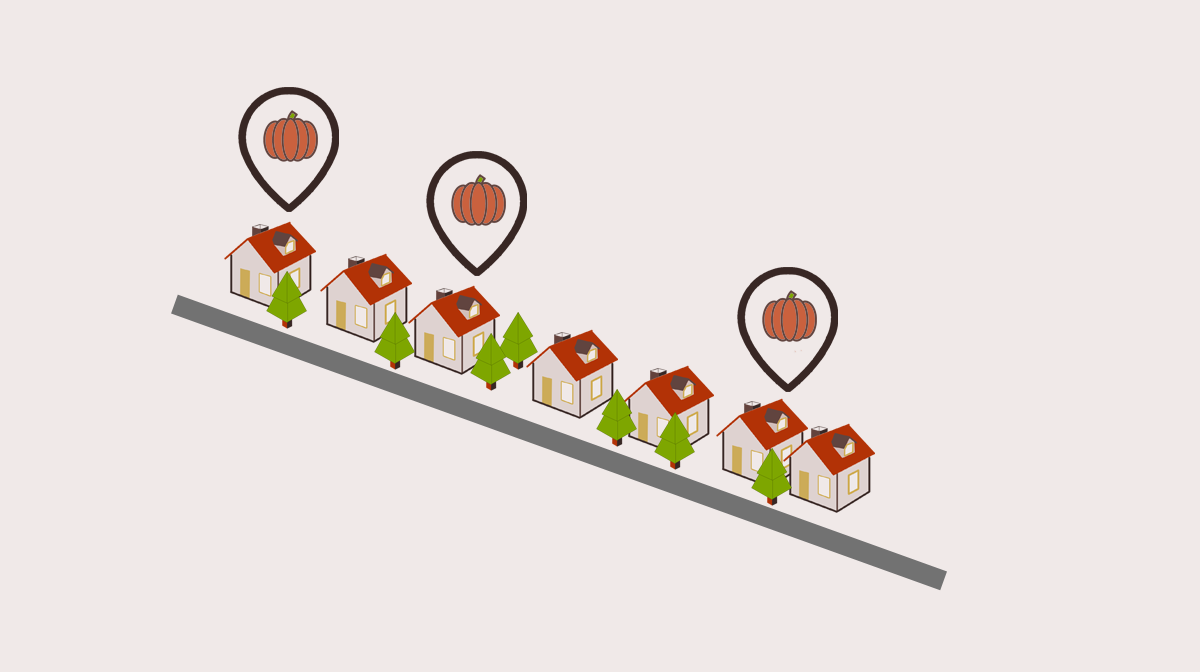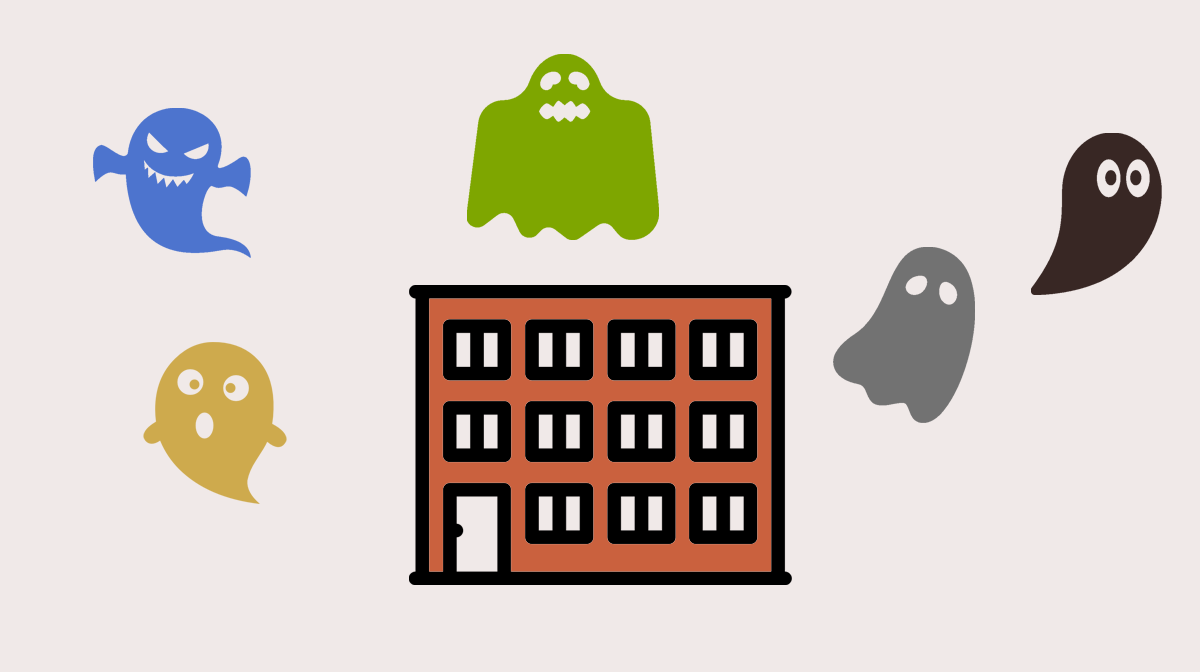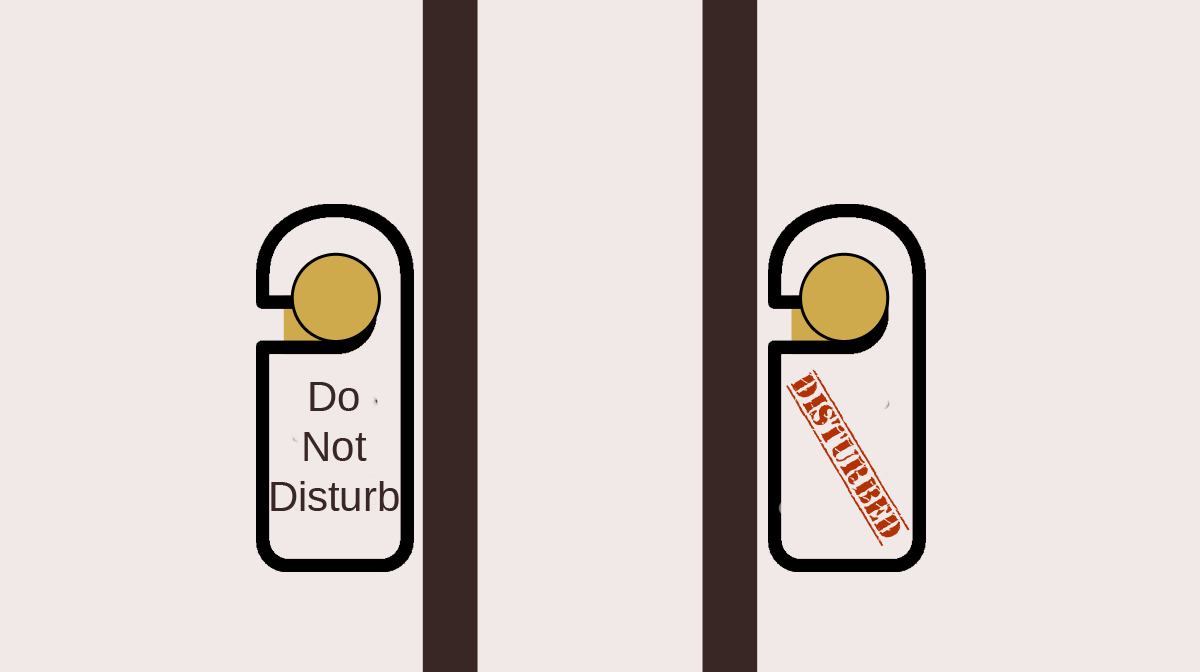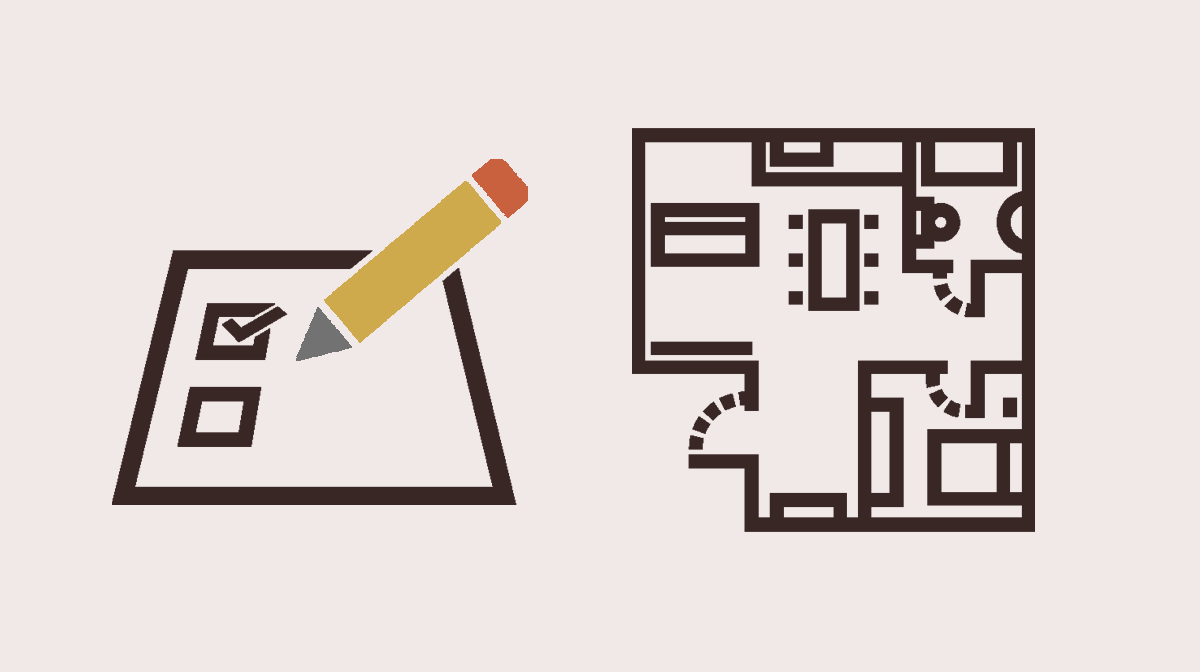I've done a lot of articles on how not to hunt for apartments. In fact, I've done a whole series. I've also done a series on questions to ask a landlord during the showing. But I've not yet done an actual showing guide - what to look at, what to do. So that's what I've got for you today.
I've done a lot of apartment showings, both as a landlord's agent and a tenant's agent. What follows below is my own checklist that I used when I was representing tenants to make sure no detail was missed.
If you do everything in this guide you will spend about an hour at the property, including half an hour inside the apartment. Bear in mind that many agents only allocate about 10-15 minutes for a showing. Don't let them rush you out.
Before the Showing
Book the showing right after work. Bring a friend.
Plan at least an hour for each showing. Arrive at least half an hour before the showing or stay for half an hour afterwards so you can poke around into the things that the agent won't show you. Allow time for parking and traffic.
If you don't have a car, make sure to take public transit to the apartment building. Rental agents will offer to drive you around, but you'll want to know what your daily commute will be like.
If you do have a car, drive around the place both before and after to count available parking spaces.
Agents won't tell you the demographics of the neighborhood, or at least they shouldn't. Draw your own conclusions. Take note of the cars parked nearby. Are they expensive? Cheap? Do they have bumper stickers that could indicate the personalities of the people living in the area? Are there a lot of out of state plates? Parking tickets?
If you're going to be parking in the area, take a look at the available spaces. Does the block have a large number of driveways or handicap spaces that take up valuable street parking spaces? Is parking permit-only? If the apartment building has a parking lot, make sure to look at cars outside the lot as well as inside.
Even if you have a car you might still want to take the public transit trip at a later time before you sign the lease. It will give you a feel for what it's like to walk around the neighborhood, and what it might be like for guests and visitors to get to you.
Building Grounds
Walk around the building and make note of what you see. Don't forget to check the following things:
- Landscaping - is it well maintained? Is the lawn mowed but not bare? Are leaves raked up? Are there flowers or shrubs?
- Large bushes that could serve as cover for robbers or block the view of the sidewalk from the street
- Cigarette butts
- Outdoor lighting
- Broken windows
- Broken downspouts
- Damaged mortar on brick buildings
- Dirty sections of the building exterior
- Graffiti
- Overflowing dumpsters
- Alley traffic
- Mattresses in alley (can indicate a bedbug problem)
- Locking fences and gates
- Political signs and holiday decorations in windows
- Window Air Conditioners
- Damaged or stained window treatments (mini blinds, curtains, etc.)
- Barred windows
- Open windows during the winter
- Loitering neighbors
- Worn or broken exterior stairs
- Test the front door and see if you can get in without a key, either by turning the knob or by light social engineering.
- Sidewalks: are they clean? are there trip hazards? are they tilted away from the building or towards it? They should be tilted away.
- Can you reach any apartment windows from the sidewalk?
Building Lobby
- Read any notices on boards or near mailboxes. You may also find notices in the laundry room or in hallways near elevators.
- Look at names on the mailboxes. Your agent won't be able to discuss who lives in the building, but the mailboxes can give you some clues.
- Lobbies get wet from rain and snow-caked shoes. Are there non-slip mats on the floor? Do the doors clear the mats as they open? Is the floor made of a surface like tile that gets slick when wet?
- If there's a doorman: do they seem to know everyone by name? Are they paying attention to the tenants and camera feeds? Do visitors have to sign in? Do they notify renters of packages waiting? Do they seem to be polite to renters? To your agent?
- Check if exterior door closes and locks without your assistance.
It's a good idea from this point on to have one person watching and talking to the agent and the other observing the surroundings. Make sure the person watching the agent counts how many keys they use to get from the lobby into the apartment.
Hallways
- Sniff the air. Do you smell cooking odors? Mold? Overwhelmingly strong air freshener? Does the hallway smell clean?
- Watch for fire extinguishers. They're often mounted in stairwells. They need to be inspected and recharged every few years. Check their tags to make sure they haven't expired.
- If there's an elevator, look at the inspection certificate (if posted publicly) and make sure it hasn't expired.
- Take note of lighting. Can you see doorknobs and locks clearly as you walk down the hall?
- Do any doors show signs of forced entry?
- Are the carpets clean and in good condition?
- Is anything stuck to the doors? Decorations, eviction notices, coroner seals? Are there piles of shoes next to any doors that could be trip hazards during an emergency?
- If there is a skylight at the top of the stairs, go up and look at the ceiling around it. Skylights are often the first place to show signs of water damage, and landlords are less likely to patch the damage in hallways.
- Are the hallway carpets clean and in good condition?
- Can you hear your own footsteps as you walk down the hall? If so, then you'll also hear everyone who walks past your apartment.
- Do you have to walk through someone else's apartment to get to the apartment in question?
- Are any hallway smoke detectors making the "low battery" beep?
Apartment Doors (front and back):
- Is there a peephole or window to see who's outside? They're required by law.
- How many locks are there? There should be at least two.
- Is the door made of hollow wood, solid wood or metal? If it's wood, is the hardware (knob & deadbolt) wrapped in metal to prevent jimmying?
- Once inside, look out the peephole at your friend and make sure you can see them clearly.
- Does the door open inward? It should.
- Is there a privacy chain or some way of securing the door from the inside other than the deadbolt?
- Are the hinges on the inside of the door?
Apartment Interiors
Immediately upon entry
- Flush the toilets. They should finish refilling before you finish walking through the entire place.
- If the unit is empty and fridge is turned on, put small items in the fridge and freezer. Retrieve them before you leave and make sure they're cooler than they were when you arrived.
Noise
- Ask if the apartment upstairs is vacant. If it is, send your friend up with instructions to first walk around it normally, and then stomp around like they were drunk or angry.
Windows and doors
- Check if doors and windows adjacent to outdoor landings are all secured against forcing. No ungrated glass should be within reach of interior deadbolts.
- Make sure all windows that open have undamaged screens.
- Open and close all blinds and windows. Make sure each room has a window that will open, stay open, and has safety stoppers to prevent it from being opened too far. Make sure all windows can be locked. Make sure to return all windows and blinds to their original positions if you're viewing an occupied unit.
- If there is no central AC, make sure each bedroom has a window that will open wide enough to accept a window AC.
- Look at walls, especially near windows, for signs of leaks or discoloration.
- Check if windowsills have damaged or flaking paint from weathering or watering plants
- Make sure all doors close and stay closed, especially bedroom and bathroom doors.
- Bifold closet doors and sliding doors should be securely attached to their tracks and able to open and close smoothly.
- Make sure bedroom doors cannot be locked in such a way that people can be trapped inside.
- Are window panes cracked or damaged?
- Is there condensation inside dual-pane windows?
- Are windows sealed with heat-shrinking plastic?
- All bedrooms should have windows that open to the outside, not to enclosed ventilation wells.
Power and Wiring
- Find the circuit breaker box and count the circuits. The absolute minimum for a studio should be 4 breakers, plus extras for electric stoves, in-unit laundry and central AC units.
- Look for signs of scorching around electrical outlets. Look for cracked outlets and outlet covers.
- Make sure all outlets within 6' of a water tap have ground fault circuit interrupters.
- If you still have a landline, make sure there are phone jacks. Many newer apartments don't have them by default.
- Do you see any exposed wires?
- Is there's at least one outlet in each room? Is there one within reach of where you would place a nightstand? You don't want to trip over a cord in the middle of the night.
Heating, Cooling and Circulation
- Make sure all windowless rooms have exhaust fans.
- If there's a furnace in unit, pull the filter and check if it's clean.
- If there's a furnace in the unit or you're in the basement or first floor above the heating unit for the building, make sure there are CO detectors within 15 ft of all bedrooms.
- Verify that there are smoke detectors in the unit near the bedrooms and kitchen.
- If there's a water heater in unit, make sure safety valves are intact and not blocked.
- If there are steam radiators, make sure they are either unpainted or smoothly painted with no cracks or bubbling in the finish.
- If there are steam radiators, turn the valves to fully open and fully closed on all steam radiators. Make sure to return valves to their original position when finished.
- Do you smell anything odd? Excessive air freshener could be covering other problems. Salty or sour smells (not food) could indicate pests, mold or gas leaks.
- Look for signs of soot or dirt around forced air heat registers that could indicate dirty ductwork.
- Look for draft blockers, space heaters, or other indications that the apartment is poorly heated or drafty.
Plumbing
- Run the water in the sink & the tub. Check how long it takes for hot water to show up. Check water pressure.
- Look underneath the sinks for signs of leaking.
Floors
- Check if baseboards meet up with the floor cleanly.
- If there's wall to wall carpet, check along the baseboards and make sure no carpet tacks are poking through.
- Check underneath area rugs for damaged floors.
- Pay close attention to hardwood flooring around steam radiators. It should be level with no discoloration or sagging.
- If there are stairs in the unit, are they of equal height?
Ceilings
- Look at the ceiling in each room for signs of leaks, especially along exterior walls and near light fixtures.
- Turn on all ceiling fans to their highest level and make sure they don't wobble. Make sure to return fans to their original power level.
- Check bathroom ceilings for signs of bubbling or cracking from condensed water.
Appliances and fixtures
- Make sure all burners light on the stove, and that the oven heats up. If you broil test the broiler too.
- If there's a disposal, put some ice from the freezer through it to make sure it works.
- If the apartment is occupied, take note of any mouse traps, ant traps or other pest control devices.
- Can you get cell phone service throughout the unit?
- Look for eroded porcelain around sink and bathtub drains that could indicate long term drips.
- Check the inside of the microwave, fridge and freezer to make sure they're clean.
- Touch the stove and microwave. Are they sticky? Dirty?
Storage
- Count kitchen cabinets and drawers. Make sure you'll have enough room for your stuff.
- Open and close all kitchen and bathroom cabinet doors. Make sure they open. Make sure they aren't sticky.
- Make sure you're not going to have a long or awkward path to carry hot pans & pots to the sink.
- Make sure closets are deep enough to hold modern hangers.
- In messy occupied units, make note if the mess is due to lack of sufficient storage or just sloppy tenants.
- In occupied units, take note of storage furniture that's been added by the current tenants.
Porch
- Is the back door in plain view of other apartments nearby, or hidden from view?
- Porches are meant to be fire escape routes. Is there a clear path for you to get to the street, or is it blocked by other tenants' belongings?
- Are there grills on the decks above you that could source hot coals that fall on your head?
Moving Parts
Laundry room
- Is there at least one washer/dryer pair for every 12-15 apartments in the building?
- Is there enough light to see all areas of the room?
- Will the laundry room be easy to access if it's raining or the back stairs have not been shoveled?
Special considerations for Basement ("Garden") apartments
- Can you get in and out all doors without walking around furnaces, water heaters, or other major obstructions?
- Are ceilings and overhead pipes at least 7.5' off the ground?
- Do the living room, kitchen, dining room and all bedrooms have windows?
- Is the bedroom window large enough for you to get out of in case of fire?
- Are window wells designed so that water can drain out somewhere other than into the apartment?
Let us know how the checklist worked out for you! Drop us a comment and do share with your apartment-hunting friends!
RentConfident is a Chicago startup that provides renters with the in-depth information they need to choose safe apartments. Help us reach more renters! Like, Share and Retweet us!






